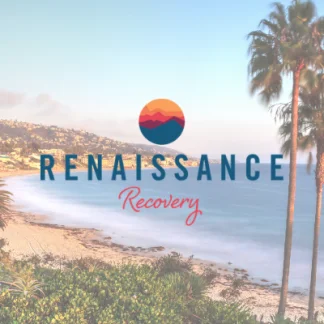Hotel California by the Sea
Hotel California by the Sea - 17th Street is dedicated to provide outpatient ser...
Renaissance Recovery stands as an accredited substance abuse treatment rehab in Fountain Valley, CA. Addressing both addiction and co-occurring mental health conditions, the center provides evidence-based and therapeutic interventions.
Renaissance Recovery is distinguished by its comprehensive range of services, combined with an individualized approach to cater to the unique needs of every client:
Renaissance Recovery offers medically monitored detox. In this controlled environment, individuals are ensured a safe and comfortable transition away from substance dependence.
Renaissance Recovery’s residential treatment program creates an environment for immersive healing. Here, residents benefit from 24/7 care, engaging in structured daily activities and therapeutic interventions. Residents are able to participate in recreational and holistic activities as well.
Renaissance Recovery’s outpatient program allows individuals to access essential therapeutic interventions while maintaining their daily routines. This balance ensures continuous support as individuals transition back into their everyday lives.
The intensive outpatient program (IOP) offers a more rigorous therapeutic regimen. Clients participate in multiple therapy sessions each week, ensuring a deep dive into their challenges while still maintaining some daily responsibilities.
The center’s medication-assisted treatment (MAT) combines behavioral therapy with FDA-approved medications, presenting a multifaceted approach. This strategy is instrumental in treating substance abuse effectively and mitigating the risks of relapse.
To ease the transition from treatment to regular life, the center offers sober living programs. These safe environments foster community support, accountability, and structure, ensuring individuals maintain their recovery momentum.
Renaissance Recovery’s aftercare stands as a testament to their enduring commitment. Post-treatment, clients are empowered with resources and continued support, ensuring their journey to long-term sobriety is steadfast and resilient.
Contact us for more information: (866) 559-4256

Connect with Renaissance Recovery by calling their admissions team directly.
(866) 559-4256 Website Get DirectionsThe Joint Commission, formerly known as JCAHO, is a nonprofit organization that accredits rehab organizations and programs. Founded in 1951, the Joint Commision's mission is to improve the quality of patient care and demonstrating the quality of patient care.
Joint Commission Accreditation: Yes
LegitScript has reviewed Renaissance Recovery as part of their certification program, and has determined that it meets the LegitScript standards for legality, safety and transparency.
LegitScript verified in January 2021
Cognitive Behavioral Therapy (CBT) is a therapy modality that focuses on the relationship between one's thoughts, feelings, and behaviors. It is used to establish and allow for healthy responses to thoughts and feelings (instead of unhealthy responses, like using drugs or alcohol). CBT has been proven effective for recovering addicts of all kinds, and is used to strengthen a patient's own self-awareness and ability to self-regulate. CBT allows individuals to monitor their own emotional state, become more adept at communicating with others, and manage stress without needing to engage in substance abuse.
Dialectical Behavior Therapy (DBT) is a modified form of Cognitive Behavioral Therapy (CBT), a treatment designed to help people understand and ultimately affect the relationship between their thoughts, feelings, and behaviors. DBT is often used for individuals who struggle with self-harm behaviors, such as self-mutilation (cutting) and suicidal thoughts, urges, or attempts. It has been proven clinically effective for those who struggle with out-of-control emotions and mental health illnesses like Borderline Personality Disorder.
Trauma therapy addresses traumatic incidents from a client's past that are likely affecting their present-day experience. Trauma is often one of the primary triggers and potential causes of addiction, and can stem from child sexual abuse, domestic violence, having a parent with a mental illness, losing one or both parents at a young age, teenage or adult sexual assault, or any number of other factors. The purpose of trauma therapy is to allow a patient to process trauma and move through and past it, with the help of trained and compassionate mental health professionals.
Dialectical Behavior Therapy (DBT) is a modified form of Cognitive Behavioral Therapy (CBT), a treatment designed to help people understand and ultimately affect the relationship between their thoughts, feelings, and behaviors. DBT is often used for individuals who struggle with self-harm behaviors, such as self-mutilation (cutting) and suicidal thoughts, urges, or attempts. It has been proven clinically effective for those who struggle with out-of-control emotions and mental health illnesses like Borderline Personality Disorder.
Trauma therapy addresses traumatic incidents from a client's past that are likely affecting their present-day experience. Trauma is often one of the primary triggers and potential causes of addiction, and can stem from child sexual abuse, domestic violence, having a parent with a mental illness, losing one or both parents at a young age, teenage or adult sexual assault, or any number of other factors. The purpose of trauma therapy is to allow a patient to process trauma and move through and past it, with the help of trained and compassionate mental health professionals.
Trauma therapy addresses traumatic incidents from a client's past that are likely affecting their present-day experience. Trauma is often one of the primary triggers and potential causes of addiction, and can stem from child sexual abuse, domestic violence, having a parent with a mental illness, losing one or both parents at a young age, teenage or adult sexual assault, or any number of other factors. The purpose of trauma therapy is to allow a patient to process trauma and move through and past it, with the help of trained and compassionate mental health professionals.
Hotel California by the Sea - 17th Street is dedicated to provide outpatient ser...
Yellowstone Recovery is a nonprofit drug and alcohol addiction recovery center i...
Gold Coast Counseling Center is a state accredited DUI school for those with sub...
Clean Path Behavioral Health is a private substance abuse center in Costa Mesa, ...